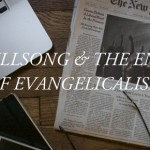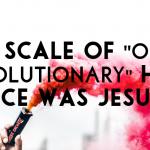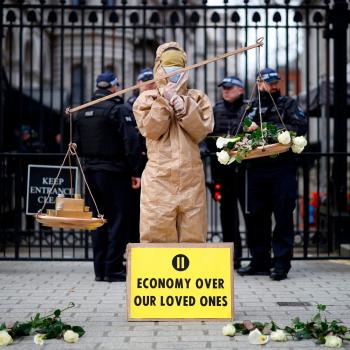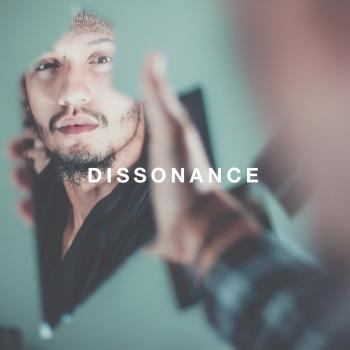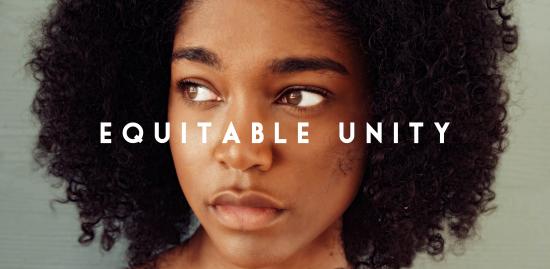
Welcoming a stranger into your home and allowing them to shift things around in order that they’ll also feel as if it’s their home… this is never an easy thing to do. While knowing, remembering and understanding Christ never called us to do only what’s easy or most comfortable.
If a Church is Gospel-centered and it’s not centered the oppressed person, it’s safe to say your church is not centered on the gospel.
Martin Luther King Jr. is famously known for saying “…the most pervasive mistake I have made was in believing that because our cause was just, we could be sure that the white ministers of the South, once their Christian consciences were challenged, would rise to our aid. I felt that white ministers would take our cause to the white power structure. I ended up, of course, chastened and disillusioned. As our movement unfolded, and direct appeals were made to white ministers, most folded their hands—and some even took stands against us.”
I’m unsure much has changed since he spoke these direct, honest, and very necessary words in 1965. This was just 3 years before he was assassinated in 1968…
No Longer Chastened and Disillusioned…
These two words haunt me as I’m returning back to the Church; mainly because these two words were why I left the Church in the first place: chastened and disillusioned…
While, over the course of too many years, I’ve learned to differentiate between the leaders that want equitable unity (i.e. an empowerment of the oppressed, disenfranchised, and the poor and the powerless) and the leaders that need to be convinced that the pursuit of equitable unity is not just good, but, it’s an inseparable part of Christ’s call for us as the Church.
The former will see you as a problem needed to be fixed and [re]indoctrinated; whereas, the latter will see you as one bringing a solution to a problem that needs to be fixed.
“But immediately Jesus spoke to them, saying, ‘Take heart; it is I. Do not be afraid.'”
Personally, I can say from recent experience, the Church I’ve been with is wholeheartedly pursuing this “empowerment of the Other [1].”
More Like “Hopeful and, I mean, It’s Happening…”
But, as of recently, I’ve been more than encouraged to see this rapid progression towards racial inclusion and the diversification of our country; our church (at large), however slow to catch up, is seemingly just now getting that, in order to survive, racial inclusion (on all levels) must happen.
Looking through the evangelical media I’m seeing more and more conservative/moderate white-evangelicals empowering fellow “evangelicals of color.”
Ed Stetzer has utilized his blog as a means of primarily giving voice to POC by allowing them to seemingly take over the entire space; John Piper [yes, has much inner work to do] has financially funded men such as Lecrae [yes, again, I know they’ve fallen out] and publicly backed the #BlackLivesMatter Movement; Carl Lentz, has vocalized endlessly for the oppressed; Intervarsity has intentionally made their stage predominantly POC…
NPR recently cited that, “Millennials make up 27 percent of the total minority population, 38 percent of voting age minorities, and a whopping 43 percent of primary working age minorities.” There have been no generations that have been more openly inclusive before ours.
The good news, in this regard, it’s endless!
The Million Dollar Question: Are We Willing to Endure the Risk of Diversifying?
Oddly and ironically enough, when it comes to racial reconciliation the Evangelical mega-Church is seemingly making more headway in this realm than us as progressives are. Diversification, in my opinion, this goes both ways; while, at the same time, Churches or denominations in power (i.e. churches/denominations that are financially set for the next century)… the question remains:
Are we willing to give voice to those we don’t know?
Are we willing to endure the discomfort of being around someone that is wholly different? To befriend someone without dehumanizing them…? To not just simply have them be used as a face or a present POC’s body, but, one who is welcomed and therefore allowed the safety to freely express their differing opinions, complaints, praises… and, to then, be taken seriously; to be heard; to be a key part of our decision making…
As Raymond Chang expresses so well, “One of the primary reasons they [POC] left was because they felt as though they weren’t considered in the shaping of the church. Instead, they felt like they were put in a siloed enclave that felt more like a guesthouse instead of an integral part of the main home.”
If your church isn’t reflective of your surrounding area then you might have an issue having to do with race, economic-classism, etc.
This [that is, diversification], I feel is the most simple, basic, and… yet one of the absolute hardest thing the American Church has faced as of yet… although, in my opinion, it’s not whether or not we’re willing to endure the risk of diversification, rather, it’s the invert of this question:
Are we willing to endure the risk of not diversifying…?
It’s About Belonging…
It’s the fear of losing this sense of belonging at the cost of welcoming others who haven’t previously been made to feel as if they belong; similarly, for myself, it’s the fear of never experiencing what it feels like to fully belong without condition…
Welcoming a stranger into your home and allowing them to shift things around in order that they’ll also feel as if it’s their home… this is never an easy thing to do. While knowing, remembering and understanding Christ never called us to do only what’s easy or most comfortable.
It’s remembering that the church, although is, in fact, a home… it is not the sole belonging to one individual, homogenous congregation, or denomination. It’s Christ’s Church built for all… We’re merely temporary keepers called to keep Christ’s mission actively intact.
In my opinion, if a pastor, lay-leader, conference organizers are unwilling to make the necessary adjustments to include oppressed persons and therefore diversify their congregation(s) they’re unfit [however temporarily] to be a leader.
I think Mars Hill is a prime example of what needs to happen when ego’s dilute the Gospel: it needs to be either redirected, reformed, immediately re-structured or just altogether shut down.
“This mass exodus of congregants seen within American Churches is more than a wake up call for non-marginalized evangelicals, it’s a turning point for marginalized communities of all kinds, creeds, genders, shapes, sizes, and colors; it’s an opportunity to unify as one despite the aforementioned disunity in our ‘churches.'”
– Raymond Chang
Grace on Grace on Grace…
Not the sociopathic form of grace that simply absolves guilt for unquestionable wrongdoing(s). The type of grace I’m referring to is the empowering yet, costly form of grace that understands we’re faulted/imperfect humans yet give us the energy to simultaneously acknowledge our mistakes while not being paralyzed with shame or guilt.
It starts with a willingness and it’s carried through by grace; a grace that will fill in the rest by creating a humble heart that actively listens and forgives not just others but oneself when inevitable missteps happen; it’s the kind of grace that negates shame from mishaps and inspires one to stay the course…
(Check back on Monday for the second part of this post)

